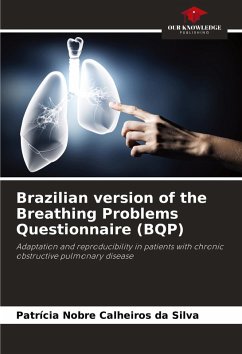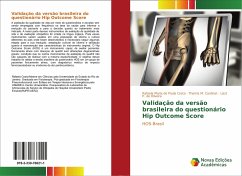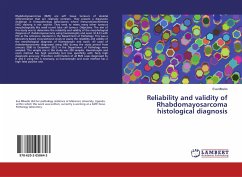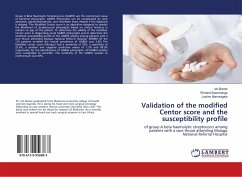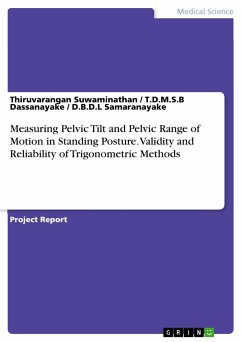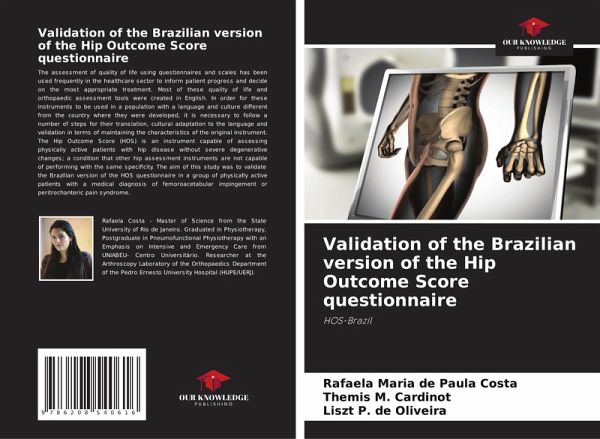
Validation of the Brazilian version of the Hip Outcome Score questionnaire
HOS-Brazil
Versandkostenfrei!
Versandfertig in 6-10 Tagen
16,99 €
inkl. MwSt.

PAYBACK Punkte
8 °P sammeln!
The assessment of quality of life using questionnaires and scales has been used frequently in the healthcare sector to inform patient progress and decide on the most appropriate treatment. Most of these quality of life and orthopaedic assessment tools were created in English. In order for these instruments to be used in a population with a language and culture different from the country where they were developed, it is necessary to follow a number of steps for their translation, cultural adaptation to the language and validation in terms of maintaining the characteristics of the original instr...
The assessment of quality of life using questionnaires and scales has been used frequently in the healthcare sector to inform patient progress and decide on the most appropriate treatment. Most of these quality of life and orthopaedic assessment tools were created in English. In order for these instruments to be used in a population with a language and culture different from the country where they were developed, it is necessary to follow a number of steps for their translation, cultural adaptation to the language and validation in terms of maintaining the characteristics of the original instrument. The Hip Outcome Score (HOS) is an instrument capable of assessing physically active patients with hip disease without severe degenerative changes; a condition that other hip assessment instruments are not capable of performing with the same specificity. The aim of this study was to validate the Brazilian version of the HOS questionnaire in a group of physically active patients with a medical diagnosis of femoroacetabular impingement or peritrochanteric pain syndrome.







